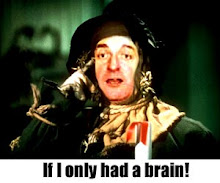Atonement
With its mix of tragic love, World War 2 and class boundaries (not to mention a cameo appearance by director Anthony Minghella), it's not difficult to see 'Atonement' as an Oscar-hungry pretender to 'The English Patient' throne. In many ways it's a worthy successor.
Like that earlier film, this is based on an acclaimed novel, in this case Ian McEwan's 'Atonement'. It tells of a love across class boundaries thwarted by a child's foolishness. After 'Pride and Prejudice', director Joe Wright recruits Keira Knightly once more as the female love interest, Cecelia, with 'The Last King of Scotland's James McEvoy playing the dashing housekeeper's son.
Dario Marianelli, the composer behind 'Pride and Prejudice's beguiling score, continues his reworking of old classical forms, pastiching Beethoven, Chopin and even some more modern minimalist. Ironically it is the more romantic works that I felt were out of place, though key to understanding Wright's vision. Again, like 'The English Patient', Wright sees this as a old-fashioned love story. It is not.
I am not denying the central love of Knightly and McAvoy's characters, just its centrality. Briony the child who causes (and chronicles) the tragedy is as necessary and vital a character as the other two. She is also the most complex of the central threesome with hints that she herself loves McEvoy, while stoically accepting her 'minor' character status in his life. What I came away from the film with was a sense of the unfairness of childhood, that it leaves us in a state of confusion while the world demands clarity. Briony is no villain, just a real person struggling with growing up.
If the score sounds a wrong note, emphasising the romance rather than the irony, every other element excels. The script in particular does some hard work, and despite frequent changes in time and perspective (especially a huge jump towards the end), screenwriter Christopher Hampton keeps the audience on side throughout.
An exceptional film then, and nothing to atone for.
Labels: Anthony Minghella, Film, Joe Wright


0 Comments:
Post a Comment
<< Home